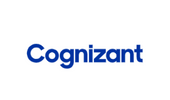Call:
+91- 8310884090
Email Us:
info@mhrconsultancy.in
Visit Us:
Novel Tech Park, Kudlu Gate, Hosuru Road, Bengaluru
Human Resource (HR) Training Course For Your Career Growth
Get Human Resources training with certified Human Resources experts. We rated as best Human Resources training institute in Bangalore with 100% Placement assistance.
Human Resources (HR) refers to the department within an organization that is responsible for managing and overseeing various aspects related to its workforce. The primary objective of the HR department is to ensure that the organization's human capital is effectively utilized, and its employees are aligned with the company's goals and objectives
























